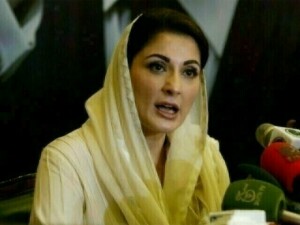The possibility of ‘piecemeal’ elections to dissolved provincial assemblies is almost over as the Supreme Court of Pakistan also appears to be receptive to the same-day election idea.
While hearing a petition filed by a private individual, the honourable court expressed its limitations in stepping outside the domain of constitutional stipulations but, if the polity can develop a consensus on the date for elections, the court could consider creating the necessary space that would modify its order for elections to the Punjab assembly on 14th May.
For this purpose the court decided to call representatives of all the political parties. What began as a solitary effort by Jamaat-e-Islami (JI) through its chief, Sirajul Haq, to help evolve consensus among the political parties for elections to all the assemblies in one go seems to have caught on in no time by the involvement of the highest court in the land.
The ‘in one go’ proposal is at the centre of national debate, and thereby a challenge to the ruling coalition of PDM (Pakistan Democratic Movement) to talk or not to talk with PTI (Pakistan Tehreek-e-Insaf). And if the reported outcome of the meeting of the 13-party coalition leadership on Tuesday is an indicator, the chances for a unanimous response appear to be quite slim, but not absolutely zero.
This was the ruling coalition’s first meeting on the issue. As expected, that meeting occasioned an extensive exchange of perceptions and positions uninhibitedly voiced by the parties’ representatives. There were ‘ayes’ and ‘nays’ in support of Sirajul Haq’s proposal, and as the meeting drew to its close the ‘ayes’ were in the majority. That doesn’t, however, mean there was a go-ahead for implementation of JI chief’s initiative.
More such exchanges cannot be ruled out. While the position taken by PPP’s (Pakistan People’s Party’s) Bilawal Bhutto-Zardari, and supported by MQM-P (Muttahida Qaumi Movment-Pakistan) and others that “doors of dialogue cannot be shut” had the future in view, the opponents of dialogue led by PDM president and JUI-F (Jamiat Ulema-e-Islam-Fazl) chief Maulana Fazlur Rahman, looked at the proposal in its yesteryear’s perspective.
And as for the host and leader of ruling coalition Shehbaz Sharif he was a bit philosophical as, according to him, despite time to time differences on certain matters the allied parties remain united, and voted for dialogue proposal because “in democracy, the decisions are made through consultation, not imposition”.
Fingers crossed; let’s hope some modus vivendi will soon emerge to have the general election in one go and within the lifetime of the present National Assembly.
Copyright Business Recorder, 2023























Comments
Comments are closed.